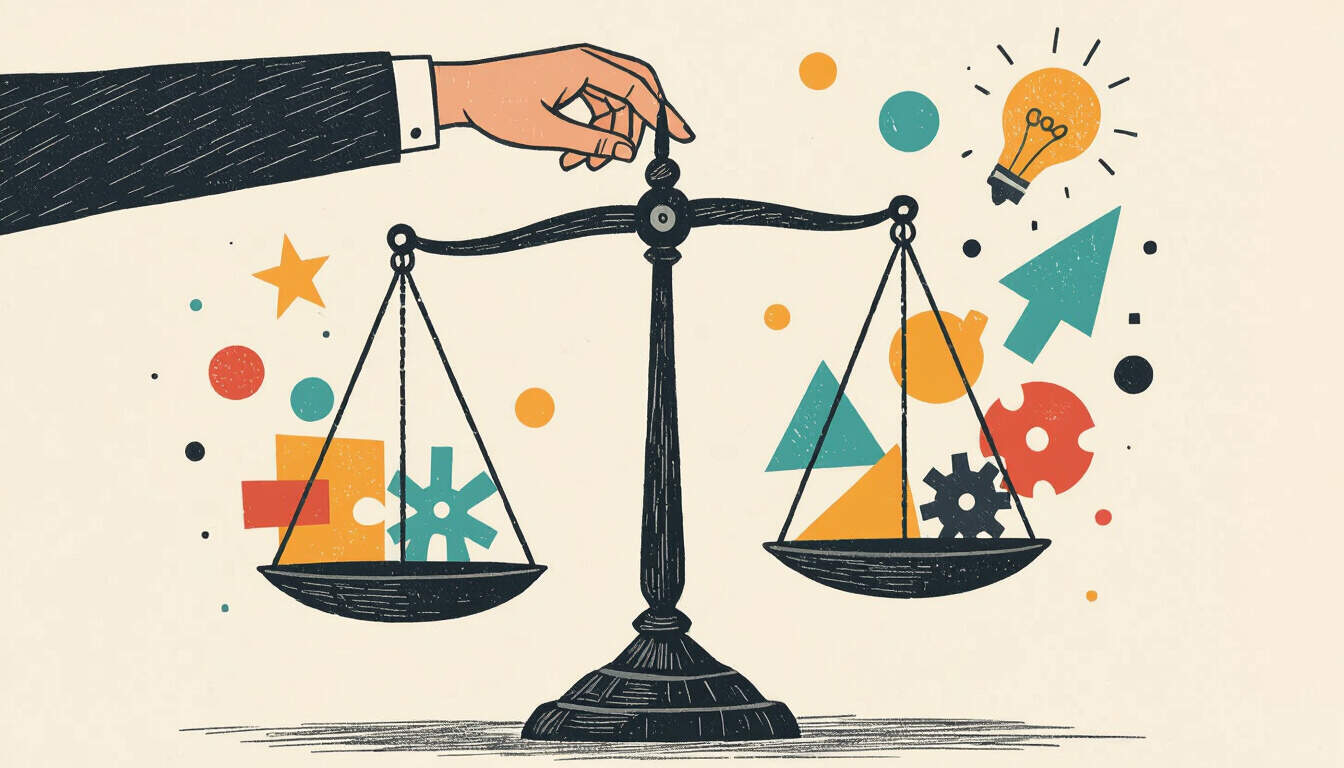Bayesian Reasoning as a Mental Model
 by Marlene Keeling
by Marlene Keeling
Bayesian Reasoning offers a way to update beliefs based on new evidence, making it essential for better decisions in psychology and business. This approach helps professionals refine ideas through logical steps, fostering cognitive growth and practical strategies.

Bayesian Reasoning stands out as a key concept that influences how we process information and make choices. This method involves adjusting our initial beliefs when new data arrives, creating a structured approach to thinking.
What Is Bayesian Reasoning?
Bayesian Reasoning draws from the ideas of Thomas Bayes, an 18th-century thinker. It centers on probability as a tool for reasoning. At its core, this model uses a formula to revise estimates based on evidence. For instance, if you start with a belief about an event, incoming information can shift that belief in a measurable way.
In practice, Bayesian Reasoning starts with a prior probability, which is our initial guess. As new facts emerge, we update this to form a posterior probability. This process repeats, allowing for ongoing refinement. Such a system proves useful in fields like science and everyday problem-solving.
Applications in Psychology
Psychology benefits greatly from this model, as it mirrors how the human mind handles uncertainty. People often form opinions based on limited data, and probability plays a role in testing those opinions against reality.
Consider how therapists might use it to assess patient progress. A clinician could begin with a base assumption about a condition and adjust it with each session's observations. This leads to more accurate diagnoses and personalized strategies. In cognitive development, children learn to incorporate new experiences into their worldview, much like updating probabilities.
Research shows that adopting this reasoning can reduce cognitive biases. For example, confirmation bias occurs when individuals favor information that supports their views. By systematically incorporating all evidence, updating beliefs becomes a natural habit, promoting clearer judgment.
Business Strategies and Decision-Making
In business, this model aids in forecasting and risk management. Leaders face choices daily, and basing decisions on evidence rather than intuition can lead to better outcomes. A company might estimate market demand using initial data and refine predictions as sales figures come in.
One example is in product development. Teams could use historical sales data as a starting point and adjust plans based on customer feedback. This iterative process helps avoid costly mistakes and aligns strategies with real-world results.
Professionals in finance apply it to investment decisions. By weighing the likelihood of various scenarios, they can allocate resources more effectively. Over time, this builds a culture of evidence-based planning, which supports long-term success.
Practical Steps for Everyday Use
To incorporate Bayesian Reasoning into daily life, begin by clearly defining your initial beliefs. Write them down to make them concrete. Then, seek out relevant evidence from reliable sources. As you gather more information, revisit and adjust your original ideas.
For lifelong learners, this means approaching new topics with an open mind. If you're studying a subject, start with what you know and build upon it through reading and experimentation. This method encourages a growth mindset, where errors are seen as opportunities for refinement.
In teams, encourage discussions that challenge assumptions. By sharing evidence, group members can collectively update their views, leading to stronger collaboration. Simple tools like apps for tracking probabilities can make the process easier and more engaging.
Challenges and Considerations
While powerful, this reasoning isn't without hurdles. One issue is the quality of evidence; poor data can lead to flawed updates. It's important to verify sources and consider potential biases in the information.
Another factor is time; updating beliefs requires effort and patience. In fast-paced environments, people might skip steps, resulting in suboptimal decisions. However, with practice, this model becomes second nature, enhancing overall cognitive skills.
Despite these points, the benefits outweigh the drawbacks. By consistently applying it, individuals can improve their ability to handle uncertainty, a vital skill in modern life.
Why It Matters for Cognitive Development
This reasoning fosters deeper thinking by emphasizing logical progression. As people practice it, they develop better analytical skills, which transfer to various areas like education and personal growth.
For curious minds, exploring such models opens doors to more effective learning. It transforms how we view knowledge, turning it into a dynamic process rather than a static fact. In the end, decision making becomes more reliable and informed, paving the way for continued intellectual advancement.
Through consistent use, Bayesian Reasoning can shape how we interact with the world, making it an invaluable tool for anyone seeking to enhance their mental toolkit.
